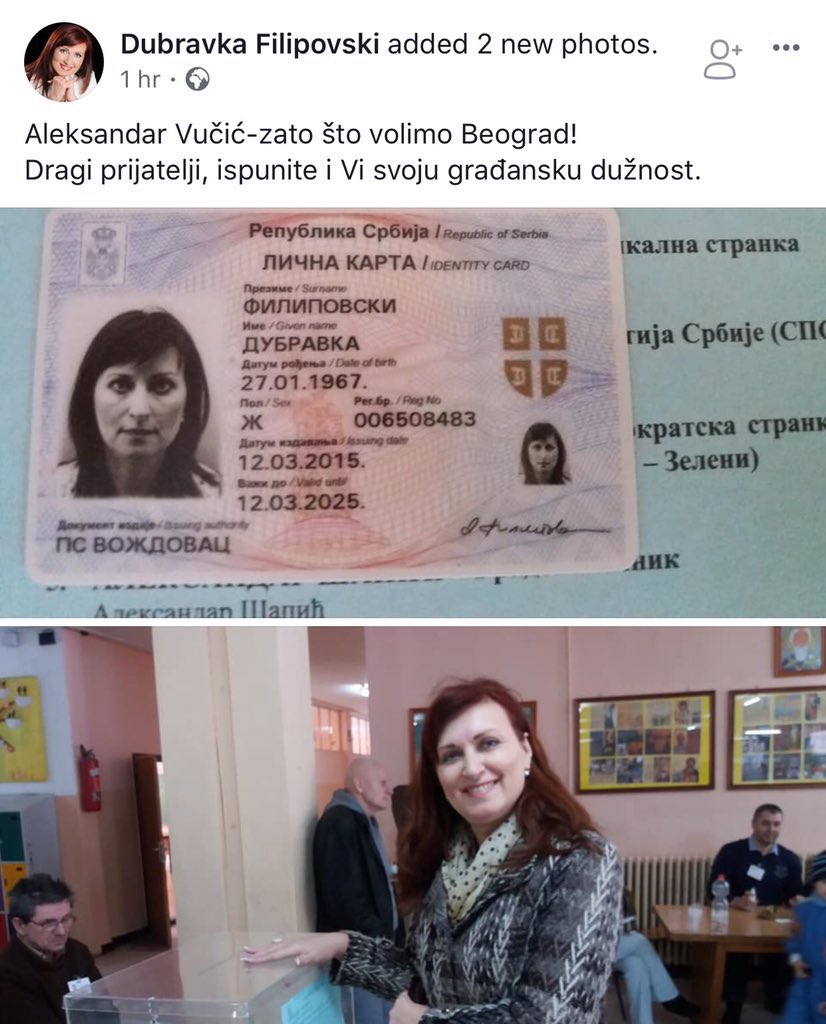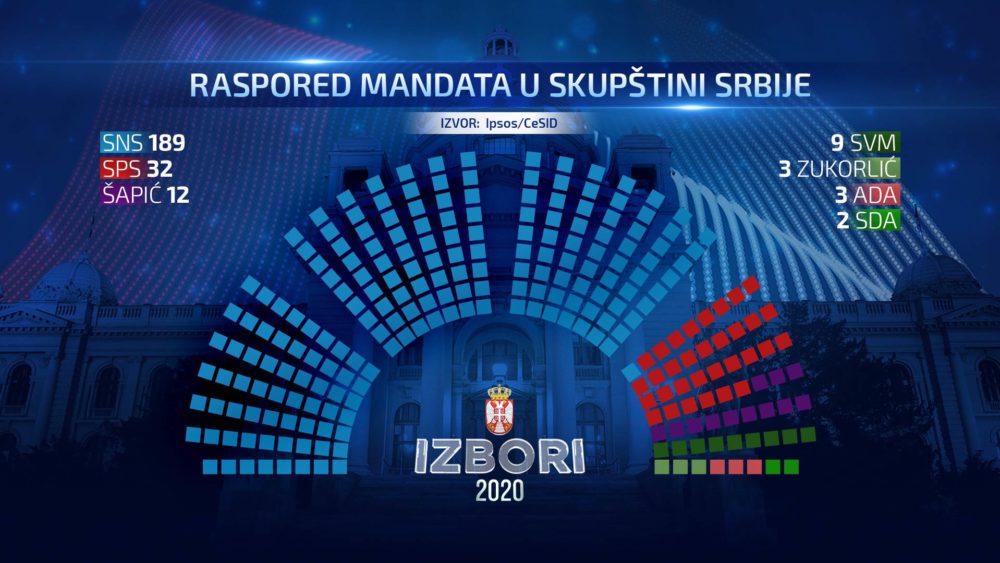This time there were no surprises. Over the past eight years of Aleksandar Vučić’s regime, we have witnessed as many ways to rig the elections as you can possibly imagine — from shutting down the media space for those from the opposition, threats and intimidation towards anybody who dares to raise their voice, and the use of pro-regime tabloids for the character assassination of those who oppose the ruling party.
The machinery for ensuring the votes for Vučić’s Srpska napredna stranka (SNS) was carefully built over the years. It included the creation of jobs in the public sector for “distinguished” party members who are then obligated to vote for the SNS or face losing their jobs. Additionally, those who are “in debt” to the party have to ensure “capillary votes”, i. e. securing votes through a network of interconnected blackmailed or otherwise compelled people. Such votes are often proven on the day of elections by providing to the SNS headquarters a photo of an ID next to the ballot paper. 
Photo: For the “favor” from the party, i.e. a job, SNS members would have to prove their “loyalty”
A variation of the same method is the intimidation of workers in public companies and misuse of public resources, where the SNS party has appointed their members as General Managers. These managers are tasked to ensure that the entire collective of employees will vote for SNS, or else…
Last but not least, there is the famous “Bulgarian Train”, an organised “trade of votes” in a location near the ballot place, where votes are bought, often from the poorest, for a package of oil, flour and some pasta and/or for up to 3000 RSD (25 EUR).
The swapping of ballot papers once the polls are closed has been reported to the Police but it was never brought to light by the legal institutions or courts. Oh, wait, legal institutions in Serbia are also heavily influenced by the SNS and corruption, as reported by the European Commission: “Currently, the scope for political influence remains of concern” — they are also part of the machinery!
It is also common knowledge that “after the sun sets, the dead are going out to vote.”
This brings us to the voting list, which officially has 6,5 million voters while Serbia is supposed to have 7 million citizens. If only we actually knew how many citizens of Serbia are eligible to vote, and how many of those on the official list are “idle votes”, i.e. dead or in the diaspora and are used to boost the turnout or to pull out the majority.
In sum, these are the conditions for any elections held in Serbia for the past decade.
What was the opposition doing?
Since 2012, the opposition in Serbia has been composed of those who were in power after 2000 and Milošević’s era — chiefly the Democratic Party (DS). DS’s legacy is the opening of the “free market”, EU funds (read: loans) and the privatisation of the public sector. This has led most of the DS voters in 2012 to ask themselves: How bad can it be if they finally lose the elections?, It’s democracy, we will change the next ones if they are no good. What an illusion.
It has become clear that the opposition wants power back due to their access privileges that they are entitled to as an MP and business deals that they now have to share with, or have lost to, SNS. Therefore, the majority of the electorate is either disappointed in their previous choices or wondering about the “alternatives”. These voters mainly consider the newly formed right-centre satellites of the ruling party and/or are not voting at all.
Over the past year, the opposition drained the little energy that people still had by dragging them around pointless protests without any plan or programme, and entirely building their platform on oratory skills pointed against Vučić and his clique. Unable to unite or to find a leader suitable for “the masses”, at some point half of the opposition decided to boycott the elections, while the other half decided to run after all. As ridiculous and pathetic as it may seem, this whole charade called elections, might finally make some parties go to well deserved retirement.
As any further analysis of Serbian opposition would be a waste of time. The only possible solution would be to create a brand new scene of options, based on social and economic reforms that would lead the country out of its colonial position — out of the privatisation of our land, water and commons, out of further austerity and out of the pull for cheap labour force for the West.
For all of the reasons above, 40,000 people per year are packing their bags to leave the country. Others are ending their lives in despair, stripped of any hope that things can be changed for the better.
As far as the EU is concerned, they turn a blind eye to dictatorship and rigged elections, to lack of civil rights and freedom of the press, to abuse of freedom of speech and repression. They do this as long as they see Vučić, or anyone else, as the obedient conductor of austerity measures, as long as Serbia plays its part in stopping the immigration to EU member states and as long as he [promises] to put an end to the Serbia-Kosovo situation. The cries for help from Serbia, mainly coming from the civil sector, are therefore not heard inside of the Brussels corridors.
Anyone who even thinks of getting involved in Serbian politics needs to deal with two main burning issues first: Kosovo and EU membership, as the anti-EU sentiment is rising over the years.
A coherent, realistic programme for change instead of populism and trite criticism of “others” is the only way out. This is a space for DiEM25 to come up with a proposal on how to put our economy and industry back on its feet. We cannot isolate ourselves in our nation states, nor choose between imperialists such as Russia or China who want to colonise the country — rather, we must be part of a [united] Europe.
In order to survive the next four years of Vučić’s rule, DiEM25 must summon these disappointed and unrepresented people around its ideals of solidarity and a common European project and by providing comprehensive solutions around a cohesive political programme. It could constitute a new political force in Serbia that would displace those parties and coalitions designed to get the same old corrupted and recycled politicians back to the payrolls of boards and parliaments. It will take time and effort. Above all, it will take courage to confront the criminal establishment.
It will get worse before it gets better. Or it won’t get better. It’s up to us!
Do you want to be informed of DiEM25's actions? Sign up here















